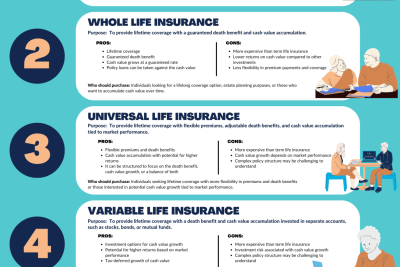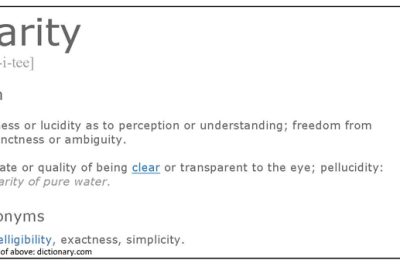
Ultimate Letter of Recommendation Sample for Scholarship from Employer

- Understanding the Importance of a Letter of Recommendation for Scholarships
- Key Elements to Include in a Letter of Recommendation from an Employer
- Sample Letter of Recommendation for Scholarship from Employer: A Comprehensive Example
- How to Customize Your Letter of Recommendation for Maximum Impact
- Tips for Requesting a Letter of Recommendation from Your Employer
Understanding the Importance of a Letter of Recommendation for Scholarships
A letter of recommendation plays a pivotal role in the scholarship application process, serving as a powerful testament to a candidate's qualifications, character, and potential for success. These letters, typically written by teachers, mentors, or employers, provide scholarship committees with a personal insight that grades and test scores alone cannot convey. They highlight an applicant's unique strengths, achievements, and contributions, which can significantly influence the decision-making process.
Key Benefits of a Strong Letter of Recommendation:
- Personal Insight: Recommendations offer a narrative that showcases the applicant's personality, work ethic, and interpersonal skills.
- Validation of Achievements: They validate academic and extracurricular accomplishments, providing context and depth to the applicant's profile.
- Endorsement of Potential: A well-crafted letter can articulate the candidate's potential for future success, making them a more appealing choice for scholarship committees.
Furthermore, a letter of recommendation can differentiate an applicant in a competitive field. With many students vying for the same scholarship opportunities, a compelling recommendation can set an individual apart. It can reflect the applicant's commitment to their field of study, leadership capabilities, and community involvement, which are all critical factors that scholarship committees consider when selecting candidates.
When seeking a letter of recommendation, it is essential to choose someone who knows the applicant well and can provide specific examples of their skills and accomplishments. A generic or overly brief letter may not carry the same weight as one that is personalized and detailed. Thus, investing time in cultivating relationships with potential recommenders can lead to more impactful letters that resonate with scholarship decision-makers.
Key Elements to Include in a Letter of Recommendation from an Employer
When crafting a letter of recommendation from an employer, it is crucial to include specific key elements that highlight the employee's qualifications, skills, and contributions. A well-structured letter not only provides a comprehensive view of the candidate but also enhances the credibility of the recommendation. Below are the essential components to consider.
1. Introduction of the Recommender
The letter should begin with a brief introduction of the recommender, including their position, relationship to the employee, and the context in which they worked together. This establishes authority and provides the reader with a clear understanding of the recommender’s perspective. For example, the recommender might state, “As the Marketing Manager at XYZ Corp, I had the pleasure of working with Jane Doe for over three years, during which she consistently exceeded our expectations.”
2. Specific Skills and Contributions
Next, the letter should outline the specific skills and contributions of the employee. This section should include quantifiable achievements and examples that demonstrate the employee's strengths. Consider using bullet points to highlight these aspects clearly:
- Leadership Abilities: Demonstrated exceptional leadership by managing a team of five and increasing productivity by 20%.
- Problem-Solving Skills: Successfully resolved client issues that led to a 15% increase in customer satisfaction ratings.
- Technical Expertise: Proficient in advanced data analysis, which resulted in improved decision-making processes within the department.
3. Personal Attributes
In addition to skills, it is important to discuss the employee’s personal attributes. This might include qualities such as reliability, teamwork, adaptability, and communication skills. Highlighting these traits can provide a more rounded view of the candidate, making the recommendation more impactful. For instance, the recommender could write, “Jane is not only a dedicated professional but also a team player who fosters collaboration and encourages her colleagues.”
By incorporating these key elements, a letter of recommendation can effectively convey the employee's value and suitability for future opportunities.
Sample Letter of Recommendation for Scholarship from Employer: A Comprehensive Example
When applying for scholarships, a letter of recommendation from an employer can significantly bolster a candidate's application. This letter serves as a testament to the applicant's work ethic, skills, and potential for success in their academic endeavors. Below is a comprehensive example that outlines the key components of an effective recommendation letter, ensuring it highlights the strengths and qualifications of the applicant.
Structure of the Letter
A well-structured recommendation letter typically includes the following elements:
- Introduction: Briefly introduce yourself and your position within the organization.
- Relationship to the Applicant: Describe your relationship with the applicant, including how long you have known them and in what capacity.
- Qualities and Skills: Highlight specific skills, accomplishments, and personal qualities that make the applicant a strong candidate for the scholarship.
- Conclusion: Provide a strong closing statement that reiterates your support for the applicant and encourages the scholarship committee to consider their application.
Sample Content
Here’s a sample of what such a letter might look like:
[Your Name]
[Your Position]
[Company Name]
[Company Address]
[City, State, Zip Code]
[Email Address]
[Phone Number]
[Date]
[Recipient Name]
[Scholarship Committee Name]
[Organization Name]
[Address]
[City, State, Zip Code]
Dear [Recipient Name],
I am writing to wholeheartedly recommend [Applicant's Name] for the [Scholarship Name]. As [his/her/their] employer at [Company Name] for the past [duration], I have had the pleasure of witnessing [his/her/their] remarkable dedication and growth. [Applicant's Name] has consistently demonstrated exceptional work ethic, creativity, and leadership abilities, making [him/her/them] an invaluable asset to our team.
During [his/her/their] tenure with us, [Applicant's Name] successfully [mention specific projects, achievements, or responsibilities]. [He/She/They] not only excelled in [his/her/their] role but also took the initiative to mentor new employees and foster a collaborative work environment. [His/Her/Their] ability to [specific skills relevant to the scholarship] further showcases [his/her/their] readiness to take on the challenges of higher education.
I am confident that [Applicant's Name] will bring the same level of commitment and excellence to [his/her/their] studies as [he/she/they] has to our workplace. I strongly support [his/her/their] application for the [Scholarship Name] and encourage you to consider [him/her/them] favorably.
Sincerely,
[Your Name]
[Your Position]
[Company Name]
This comprehensive example highlights the essential elements of a recommendation letter from an employer, ensuring it effectively supports the scholarship application.
How to Customize Your Letter of Recommendation for Maximum Impact
Customizing a letter of recommendation is essential for making a lasting impression on potential employers or academic institutions. A generic letter can easily get lost in the shuffle, whereas a tailored recommendation highlights specific qualities and achievements that resonate with the recipient's expectations. To achieve maximum impact, consider the following strategies.
Understand the Purpose: Before drafting or requesting a letter of recommendation, clarify the purpose it serves. Is it for a job application, graduate school, or a scholarship? Each scenario demands different attributes to be emphasized. For example, a job application may prioritize leadership and teamwork skills, while an academic program might focus more on intellectual curiosity and academic performance. Tailoring the content to match the specific requirements will make the letter more relevant and persuasive.
Highlight Relevant Skills and Achievements: Once you know the purpose, identify the skills and accomplishments that align with the recipient's needs. Use bullet points to outline key achievements, such as:
- Successful projects that demonstrate problem-solving abilities.
- Leadership roles that showcase teamwork and collaboration.
- Academic accolades or research contributions relevant to the field.
By emphasizing these tailored experiences, you not only personalize the letter but also provide concrete evidence of the candidate's qualifications.
Incorporate Specific Examples: To further strengthen the letter, include specific anecdotes or examples that illustrate the candidate’s strengths. This could involve recounting a successful project, a moment of resilience, or an instance of exceptional performance. Specificity not only makes the recommendation more engaging but also provides tangible proof of the individual’s capabilities.
By focusing on these elements, you can create a compelling letter of recommendation that stands out and leaves a positive impression on its readers.
Tips for Requesting a Letter of Recommendation from Your Employer
When it comes to requesting a letter of recommendation from your employer, timing and approach are crucial. First and foremost, choose an appropriate time to make your request. Avoid busy periods or stressful times for your employer, as this may lead to a rushed or less thoughtful letter. Aim for a moment when your employer can give the request the attention it deserves, such as after a successful project completion or during a performance review.
Be clear and specific about why you need the recommendation. Whether it’s for a job application, graduate school, or a professional certification, providing context helps your employer understand the importance of the letter. You can also mention any particular skills or experiences you’d like them to highlight. This not only makes it easier for them to write the letter but also ensures it aligns with your career goals.
Additionally, consider providing a draft or bullet points that summarize your achievements, contributions, and skills relevant to the position or program you're applying for. This can serve as a helpful guide for your employer and may increase the chances of a more personalized and impactful letter. Remember to include any specific deadlines for submission, giving your employer ample time to craft a well-thought-out recommendation.
Lastly, don’t forget to express your gratitude. Whether your employer agrees to write the letter or not, a sincere thank-you note can go a long way in maintaining a positive relationship. Acknowledging their time and effort is important, as it reflects your professionalism and appreciation for their support.
Did you find this article helpful? Ultimate Letter of Recommendation Sample for Scholarship from Employer See more here General.
Leave a Reply






Related posts